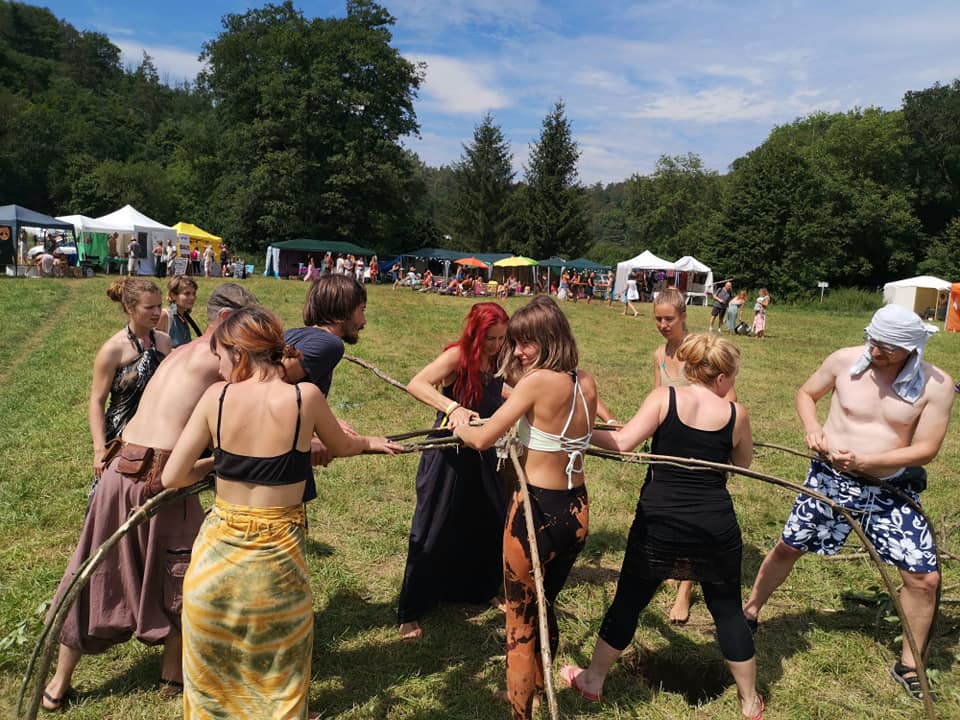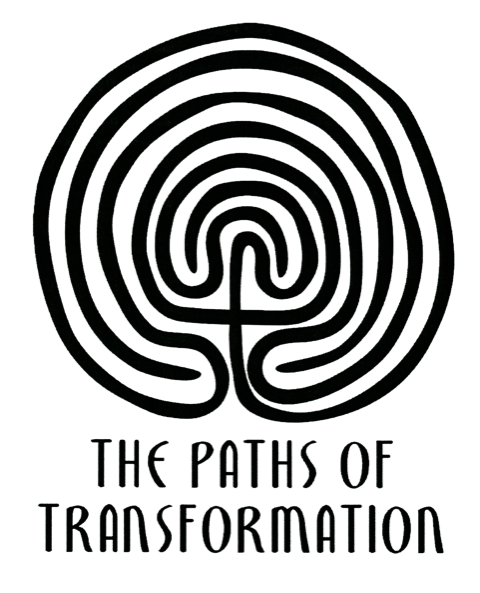
Jitka Mandalam
The Sweat Lodge
The Native American ceremony of the sweat lodge is a purification ritual, using the four directions and the four elements. Originally performed in a cave, the lodge, constructed of branches and animal hides (nowadays blankets and tarpaulin), replaces the cave where this natural feature is not available. It represents the womb of Grandmother Earth, and as such is built in the West. A fire is built in the East, and the two are linked by an umbilical cord made of earth. The participants enter the lodge naked or near naked and on all fours to symbolize returning to the womb for a death and a rebirth. With the words “for all my relations” we dedicate the ceremony to healing for all the earth. The alchemy of the purification is that the element earth in the form of stones is heated in the fire. Fire is the element of purification and transformation, and the stones hold this power as they are carried into the lodge and placed in the pit in the centre, or in a healing sweat in the Northeast.The glowing stones are greeted as they come into the lodge: “welcome, brother”. Another name for this ritual is the stone-people’s ceremony. Water, whose function is that of giving, is poured onto the stones and releases the power of the fire in the form of steam. As the steam mingles with the air, we are able to receive the purifying power by breathing it in, releasing any toxins from our bodies through our sweat. Prayers are said in the four quarters of the ceremony. The leader of the sweat calls in the powers of the North as we ask for healing for others; then the powers of the West to ask for healing for our bodies; the powers of the South for our emotions and inner child; and the powers of the East to ask for a vision for our spirit and our path. Between the quarters the flap is opened and the air changed. We emerge from the ceremony, again on all fours, charged and purified, and lie with our bellies on the ground, letting go of any remaining unwelcome energies to Grandmother Earth from our earth chakras. (John Hawken)
